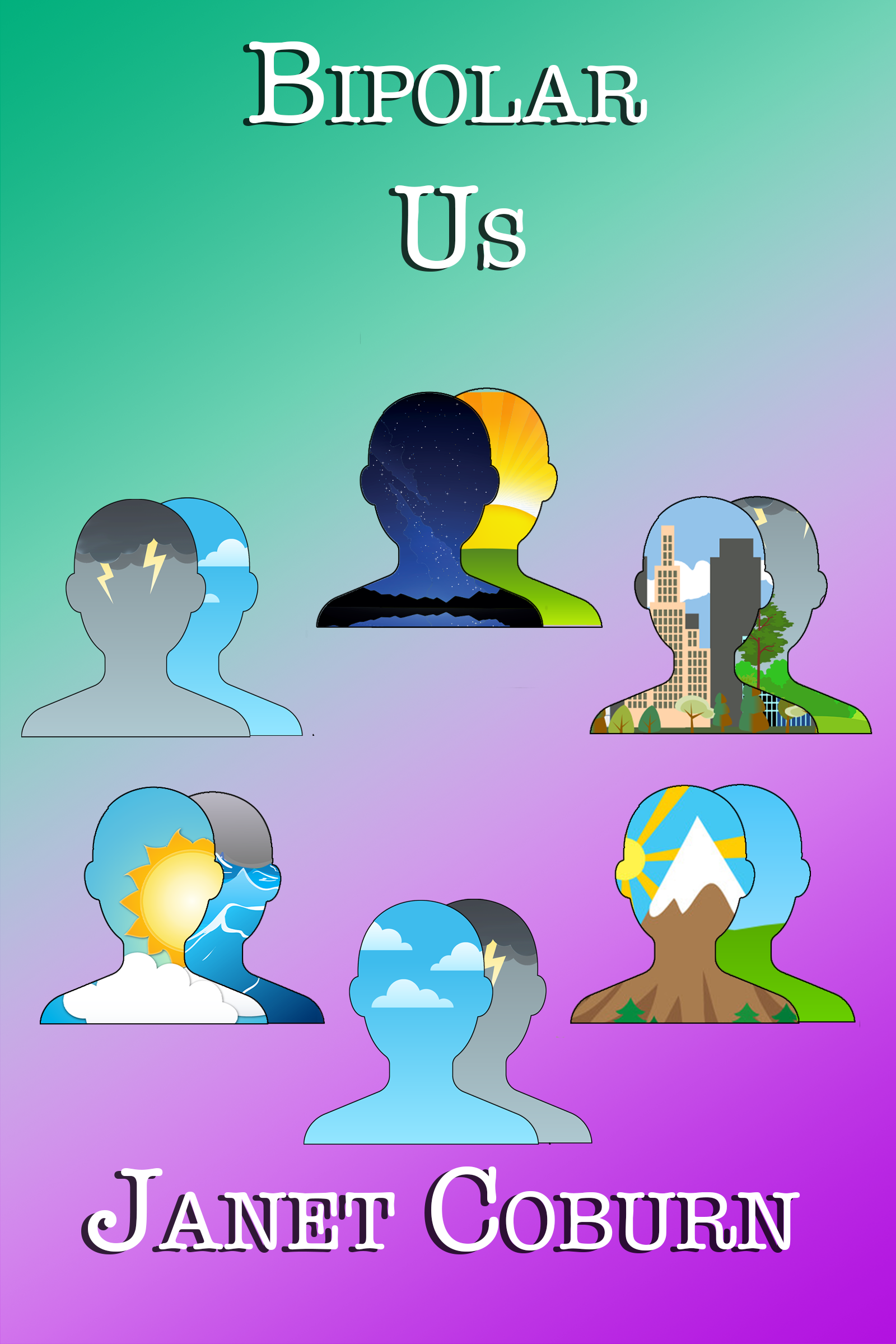My family has never been big on support groups. When my father had multiple myeloma (which killed him after 15 years), he turned down any opportunities he was given to join cancer support groups with names like Make Today Count. He preferred to go it alone. He was stubborn.
So am I.
I have actually been to support groups for mental illness once or twice, but they were never a success or, I guess, just never right for me.
The first one was when I was in college. That one was a bust because I wasn’t really ready to address my problems and because I had the ability to appear “normal” for an hour at a time while sitting cross-legged on the floor. I couldn’t do that now. (The floor-sitting part.)
The second time was after I saw a brochure for a group called High Flyers and Low Landers, which met in the church I was going to at the time. (I don’t think the organization still exists. The church is still there.)
It was a very odd experience. Everyone had a book, many with needlepoint covers. It was their bible, though not the Bible, which I know many people needlepoint covers for, or at least did back then.
The meetings consisted of a little ritual. One person read a passage from the book. Then each person in the circle had to tell an event that happened to them in the past week. The recital had to be in a specific format: what happened, what symptoms the person experienced (dry mouth, racing thoughts – there was a list), how the person would have handled it before reading the book, and how the person did handle it. There was much quoting of the book and certain specific phrases that everyone had to use.
Some of the quotations were helpful, or at least true. (People do things that annoy us, not to annoy us.) But as I recall, those were the only sorts of comments the people in the circle were allowed to make. Not “How did that work out?” or “What did your mother do next?” or “I hate when people get passive-aggressive.”
It was just too weird and formulaic for me, so I never went back. (As I was leaving, I offered someone a mint. Everyone laughed and said, “Dry mouth!”)
Since I don’t seem to do so well in actual support groups, I recently thought I would check out some virtual ones. I’m not going to name the groups I joined or where I found them, because all of them stressed privacy and confidentiality.
What I found was both support and non-support.
Some of the groups were associated with national organizations or publications, and they pretty much stuck to sharing articles about scientific research or political news about mental illness, along with lists of resources, hotlines, and the like.
So far, so good.
Other groups were more like traditional support groups, with members asking questions or relating accounts of what had happened or how they felt. There were administrators who tried to keep the members to more or less stick to the topic and rules of the group (give trigger warnings, no suicide threats, or whatever).
Some of the groups were peaceful. People asked standard questions (Who’s on this med? Should I take something else too?) and received fairly standard answers (Worked for me. Didn’t work for me. Ask your doctor.) People related similar events and how they handled them, or asked for more specifics so they could understand the situation better. People posted assorted uplifting memes and affirmations.
Then there was the other sort. People did not know how to use trigger warnings or simply didn’t bother. Others shared people’s posts without removing identifying information. Some posted truly vulgar jokes that had nothing whatsoever to do with bipolar disorder. Negativity overflowed. Arguments raged. (Some of the topics were “Bipolar is not an excuse for bad behavior” and “Don’t buy into the drug companies’ propaganda by taking meds.”) There was the online equivalent of name-calling and shouting. People reported other people to the admins. People accused people of reporting people to the admins.
The administrators did try to keep a handle on these groups, but couldn’t always, most likely because they were busy with their own lives and issues and difficulties.
It got so bad that I took to lurking instead of participating. Every week or so I would go back to take a peek and check on the drama llamas. Mostly they were still running around spitting. I think I had helpful things to add to the discussions and times when I needed help with feelings, but I just couldn’t trust enough to jump back in. I know other people left these groups for similar reasons, and some were blocked or banned or given warnings about their behavior.
In general, I have this to say about online support groups. You’d do well to sit back and watch their interactions before you try participating on anything but a “Congratulations! You got a job!” level. If the group seems truly helpful – supportive – then dive in. You may be able to give and receive help.
But non-support is exhausting. And I’m too stubborn to put up with it.



Comments on: "Support and Non-Support Groups" (3)
Sorry you didn’t gave success with online or face to face support groups. From the way you describe them I don’t think I would have hung around either.
I did have good luck with a couple (one in person and one online.) If you’re interested in checking a couple out, just let me know.
LikeLike
Your experience sounds very much like mine. The in-person support group just didn’t work for me. People talked about how they felt and their problems but I didn’t see anyone learning about how to cope. I wanted to learn how to live a better life with bipolar. I searched online and finally found a support group forum that I found somewhat helpful.
LikeLike
Thanks for sharing. I’m glad you found a group that at least meets some of your needs.
LikeLike